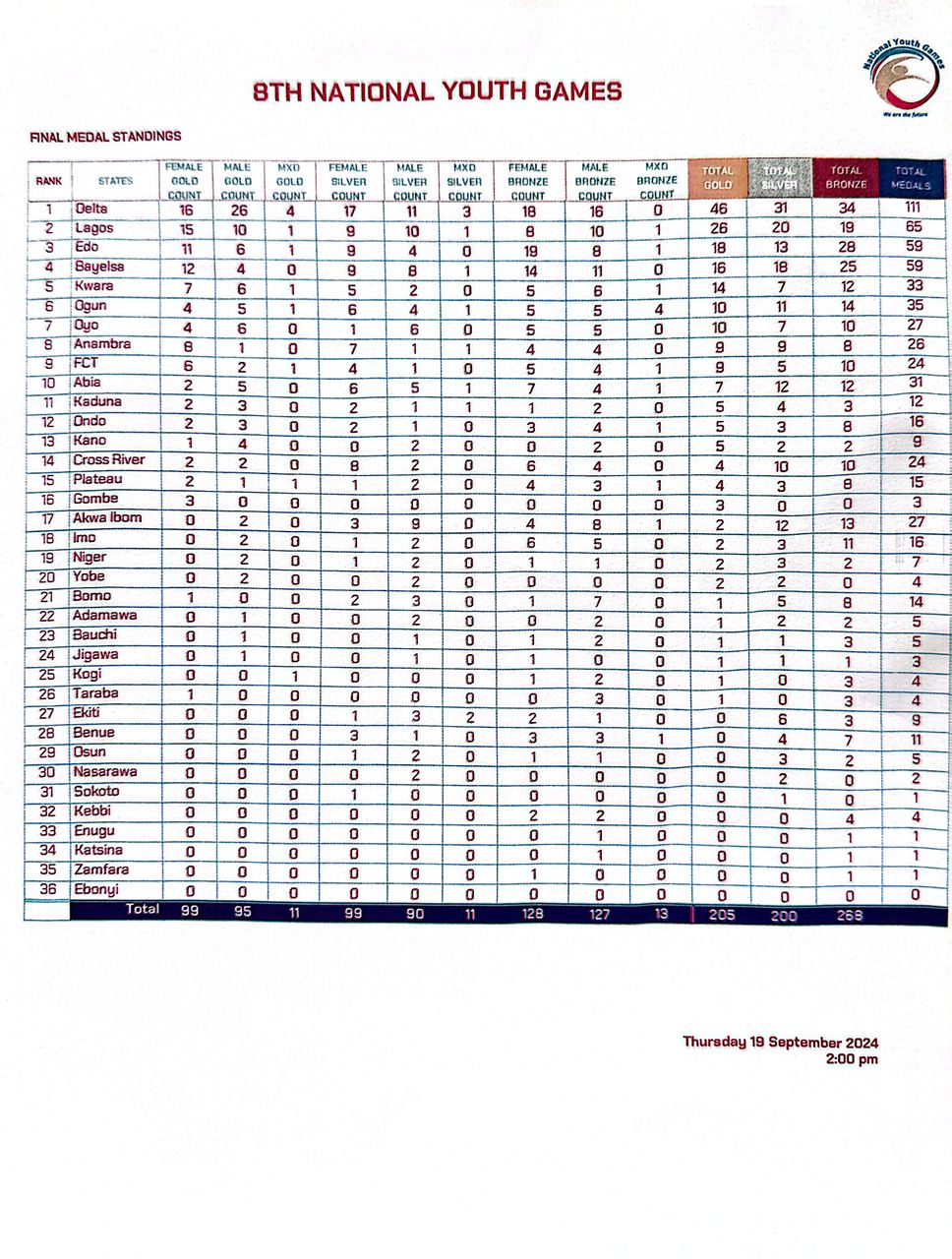Place your adverts here on InfoDig @ low rates; banner ads, sponsored links and guest articles etc. Contact us
Certain economic policies implemented by President Bola Tinubu’s administration have had a detrimental impact on the lives of many citizens. Rising inflation and the crisis stemming from high fuel costs have worsened these challenges. The Chief Executive Officer of the Centre for the Promotion of Private Enterprise and an economist, Dr Muda Yusuf, shares his insight with AYOOLA OLASUPO on the current economic challenges, policy reforms, and the potential opportunities for Nigeria’s growth and development
Due to unstable exchange rates, cargo clearance has become increasingly challenging for business owners and investors. How can this issue be resolved?
The most significant challenge we face in today’s economy is inflation. The soaring cost of living, production, and operations is placing immense pressure on both citizens and businesses. Consequently, any measures the government can implement to reduce costs without undermining existing reforms should be seriously considered.
Currently, the cost of cargo clearance has reached unprecedented levels, primarily due to a considerable depreciation of the exchange rate, which has significantly impacted the cost of imports in our import-dependent economy.
This economy is particularly sensitive to fluctuations in exchange rates, resulting in a substantial increase in import costs.
When the same exchange rates used to procure imports are applied to the computation of import duty, it creates a double whammy.
This exacerbates the negative effects of exchange rate depreciation on import costs, contributing to inflation.
The cost of cargo clearance has surged by over 100 per cent, which will inevitably be reflected in market prices and inflation, affecting raw materials, equipment, intermediate products, and more.
To address this issue, we propose that the government consider adopting a rate of N1,000 to the dollar for the computation of import duties.
The objective is to lower costs and align with the government’s aim to mitigate economic pressures.
Importantly, we are not suggesting that the government sell foreign exchange at this rate; rather, we propose that when goods arrive at the ports, the exchange rate used to compute duties could be set at N1,000 or even N800.
Flexibility in policy instruments is essential; rigidity is not an option. We appeal to the government to review its stance and lower the exchange rate used for calculating import duties. The Presidential Committee on Tax and Fiscal Reform has made similar recommendations, and we believe there is merit in this approach.
We urge the government to reconsider its position regarding the exchange rate for import duty computation.
What are the benefits of sector-specific waivers compared to company-specific ones from the government, and how will this impact economic growth and support the manufacturing sector?
Waivers, whether tax or import duty exemptions are designed to incentivise and support vulnerable sectors, particularly within the real economy, to boost production, create jobs, and maintain competitiveness.
The primary aim of granting waivers to industries is to establish a level playing field. Therefore, sector-specific waivers ensure that all players and investors within that sector can benefit equally.
In contrast, granting waivers to specific companies disrupts the economy by creating an uneven playing field and undermining the principles of competition that are vital for a healthy economy. As a fundamental principle of economic management, waivers and incentives should be extended to entire sectors rather than individual companies. Additionally, these waivers should be time-bound to ensure transparency and prevent the creation of a discriminatory incentive regime within the private sector.
We have observed numerous distortions resulting from arbitrary, company-specific waivers, leading to abuse, corruption, and other negative consequences. To foster a level playing field, any incentives provided by the government should be accessible to all investors within the sector, avoiding selectivity in offering incentives to individual companies.
Recently, you accused the Federal Competition and Consumer Protection Commission of gradually becoming a price control agency rather than protecting consumers’ rights after the commission requested that traders reduce the prices of food items. Can you elaborate on why you made that statement?
The Federal Competition and Consumer Protection Commission is fundamentally tasked with promoting a culture of competition in the economy and safeguarding consumers’ rights. Its mandate does not extend to price fixing. The emphasis should be on fostering competition, based on the principle that once established, profiteering and price gouging will naturally diminish. Abnormal profits and price gouging will decline as competition increases. Monitoring market prices is not the commission’s responsibility; in any system, numerous players will result in price levels balancing out due to competition.
The focus should instead be on issues such as quality, standards, counterfeiting, and deception, which fall under the purview of NAFDAC, SON, and the Department of Weights and Measures in the Ministry of Trade and Investment.
These are not primarily the responsibilities of the competition commission. We are concerned that the commission has been concentrating too heavily on the retail end of the market. If price collusion or gouging occurs, it is more likely to happen at higher levels of the supply chain, where there are fewer players—whether distributors or producers—who possess the power to exploit consumers through monopolistic practices. This is where the commission’s efforts should be directed. It is particularly troubling that the commission has begun issuing ultimatums to market participants, instructing them to lower prices or face consequences.
But the commission has denied that.
Yes, although they have since denied it, their aim was not to control prices but to prevent collusion and similar practices.
However, it was evident that they were concentrating too much on the retail end of the market, which is not where the primary issues lie.
Furthermore, there are instances of a blender being priced significantly higher in both US and Nigerian supermarkets. Focusing on a single product in one supermarket is not a scientific approach.
To make generalisations about abuses, we require more comprehensive data. If a blender is excessively priced in one store, consumers have the option to shop elsewhere. There are thousands of department stores and supermarkets in the country.
If someone chooses to purchase a blender for N1m, that is their decision. The commission should redirect its efforts towards more pressing consumer rights issues.
Do you also agree that there is a need for a price control body to curtail the outrageous surge in commodity prices and prevent exploitation?
While we cannot leave the economy entirely to market forces to set any prices they like, the solution is not to implement a price control regime. We have been down that road before, and it created chaos and confusion. Instead, we should focus on identifying the key drivers of high prices or inflation. In Nigeria, these drivers include exchange rate depreciation and the high cost of energy. Whether we’re discussing petrol, diesel, gas, aviation fuel, or kerosene, energy costs significantly impact transportation, production, and operations. When the prices of these energy products rise, overall prices inevitably follow suit.
Logistics costs also play a crucial role. In Nigeria, 95 per cent of goods are transported by road, which is expensive since vehicles rely on petrol or diesel. In contrast, advanced economies often use rail transport and liquid items like fuel are moved through pipelines. Unfortunately, our rail system has collapsed, and our pipelines are non-functional, leaving us reliant on road transportation.
Additionally, insecurity affects the food supply, further driving inflation and high food prices. Many farmers have been displaced and are now in Internally Displaced Persons camps, leading to supply shortfalls that naturally drive prices up—this is basic economics.
We also face increased incentives to export our products to neighbouring countries due to the relative strength of their currencies. Exchange rate reforms have weakened the naira, making it more profitable to export food and petroleum rather than sell them domestically, which affects our supply side.
Seasonality in agricultural production is another issue, as we rely on rain-fed agriculture. We don’t practise year-round farming due to insufficient investment in technology, irrigation, and mechanisation, compounded by weak storage capacity for agricultural products, resulting in significant post-harvest losses.
These factors are driving inflation. No amount of price control will reduce prices if these underlying issues remain unaddressed. For me, the focus should be on tackling the root causes of inflation rather than imposing price controls.
Do you agree with the claim by some that the current economic strategies employed by President Bola Tinubu’s administration are failing to deliver positive results?
The current reforms implemented by this administration were necessary, focusing primarily on two components: foreign exchange reform and oil and gas sector reform, specifically the withdrawal or partial withdrawal of subsidies. These reforms were essential because the economy was suffering from dysfunctional policies in these areas, and reform could not be delayed any longer.
I’ve heard discussions about timing, but if a patient is bleeding, immediate action is required to stop the bleeding before administering other treatments. While these reforms were necessary, we needed to ensure that the negative consequences were mitigated—specifically, the hardships that arose from their implementation. In this regard, the administration could have responded more effectively and swiftly to these negative outcomes.
Some of the president’s pronouncements also faced delays in implementation due to the sluggishness of Nigerian bureaucracy. Bureaucratic processes hindered the timely execution of mitigating measures. No reform is perfect, and as we implement them, we must fine-tune them as necessary.
It’s important to recognise that no two economies are the same; a reform that works in the US or Europe may not yield the same results here due to differing circumstances and peculiarities. So, while I agree that the reforms were both necessary and well-intentioned, we must continuously adjust them as we progress.
Additionally, we should ensure that our mitigating measures effectively alleviate the hardships caused by these reforms. Where market failures exist, the government should intervene to correct them. In economics, we acknowledge that markets aren’t perfect; when they fail to deliver the desired outcomes, it is imperative for the government to step in and ensure those outcomes are achieved.
It is believed that the activities of illegal refineries constitute economic sabotage in the country and present a significant challenge for the Federal Government. Some have suggested that the government should legalise these illegal refineries. What are your thoughts on this?
We face substantial issues with domestic refineries, and it’s a poignant reflection of our nation that, despite being an oil producer, our refineries have not operated for over a decade. This is largely due to entrusting them to politicians and bureaucrats, which has resulted in their prolonged inactivity. The quality of our public institutions has deteriorated compared to what we experienced in the 60s and 70s. Relying on the public sector for such valuable assets has hindered our ability to achieve the desired outcomes.
We should not have allowed our refineries, or the oil and gas sector, to remain in public hands for so long; we are now facing the repercussions. Consider what Middle Eastern countries have accomplished with their oil resources. Take the UAE, for instance. Their reserves are not significantly larger than ours, yet they have effectively utilised their oil to build a robust economy and unlock tremendous value. In contrast, we have mismanaged our resources, implemented ineffective policies, and allowed criminality to flourish in oil-producing regions. Investors have long expressed concerns about policy and insecurity, yet these issues remain unaddressed, resulting in the loss of many international investors capable of enhancing our oil output.
Regarding illegal refineries, while some advocate for their legalisation instead of destroying their assets, many overlook the fact that these operations are using stolen crude. We cannot legalise criminality. If individuals establish refineries and source their raw materials by stealing crude from pipelines, it is unjustifiable to legalise such activities. Legalising them would essentially endorse criminal behaviour.
If those setting up these refineries were capable of extracting crude legally, perhaps as locals of the area, it would be more reasonable to consider granting them licences to explore and process crude. However, given that they are stealing crude for production, legalising their operations would be highly inappropriate.
What do you think will be the economic implications of the recent hike in the price of petroleum products on the newly approved N70,000 minimum wage?
The recent hike in the price of petroleum products, particularly PMS, has unfortunately become inevitable. While this is a painful development, it reflects the reality that, at the onset of this administration, the subsidy was entirely removed. At that time, the exchange rate was around N750 to the dollar, allowing PMS to be sold at about N600, effectively eliminating the subsidy. However, with the ongoing depreciation of the exchange rate, the subsidy began to increase. Before this latest hike, it reached as high as N500 to N600 per litre, and if that trend had continued, we would have faced a subsidy bill close to N8 trillion by the end of the year—a clearly unsustainable burden for the economy.
The subsidy situation has worsened because we import nearly all the petroleum products we consume, a consequence of previous administrations’ failure to ensure our refineries were operational, despite spending billions on them. The government has tried to prevent price increases, but it has reached its limit. The fact that NNPC has stated it owes suppliers billions of dollars is alarming and could lead to the government’s bankruptcy, as the oil sector and NNPC are critical to the country’s economic viability.
This is a difficult situation with no easy solutions. The government should focus on mitigating the resulting hardships by implementing social intervention measures. Hopefully, as domestic production increases with the Dangote Refinery and others, prices may stabilise. If crude oil prices decline or the exchange rate situation improves, we could see lower petroleum product prices. However, for now, our options are limited. This situation will lead to higher transportation and production costs, exacerbating poverty and inflationary pressures. It is a legacy issue rooted in the failures of our refineries, pipelines, and rail systems.
I suggest the government designate certain NNPC stations as subsidy stations, setting aside a budget of N1 trillion to N2 trillion annually for subsidies at these locations. This would cap subsidies and create long queues at those stations. Wealthier individuals may choose to purchase fuel at higher prices, while more vulnerable segments of society could benefit from subsidised rates. Additionally, the government should promote the use of CNG and renewable energy by subsidising the transition to these alternatives. Removing tariffs and taxes on solar panels, inverters, batteries, and wind turbines could encourage citizens to reduce their dependence on PMS and diesel, thereby lowering their energy costs. These are some quick measures I believe the government can implement to mitigate current hardships, though I recognise it is a challenging choice.
All the economic policies implemented by the current administration are causing hardship and pushing people into poverty. Don’t you think there is a need for the government to relax some of these policies?
Yes, the government’s policies have indeed brought significant pain, and there is no denying that. However, when implementing policies to correct long-standing dysfunctions in the system, some hardship is inevitable. No government deliberately inflicts hardship on its people, but these policies were necessary to stabilise the economy. We can discuss the need for greater responsiveness to the resulting challenges. I believe the government should have employed more fiscal policies. They are beginning to do this now by removing duties on food, pharmaceutical products, intermediate goods, and some raw materials. The scope of these interventions could be expanded and extended without undermining domestic production. The savings generated by these reforms in terms of revenue should be returned to citizens in the form of targeted subsidies rather than being fully allocated to the federation account.
Why do you think this administration is finding it difficult to reduce hardship and improve the standard of living for the people?
We haven’t seen significant results in reducing hardship, which I attribute to the slow implementation of policies, a problem rooted in the effectiveness of our bureaucracy. If the government introduces a policy to ease citizens’ burdens but the responsible bureaucracy is not diligent, we face challenges. There are issues with the capacity and transparency of implementation. Additionally, some policies need to be better targeted. For instance, concessions could be offered to businesses so they can produce at lower costs, with benefits trickling down to the public. Instead of using savings from reforms to generate more revenue for government institutions, the focus should be on reducing taxes, import duties, and levies, as well as providing subsidies for health services, education, and transportation. This would have a direct impact on citizens. For example, the government removed tariffs on pharmaceutical products, but companies have yet to see the benefits of these concessions, even two months later. These challenges need to be addressed to ensure the government’s actions positively impact citizens’ lives.






![AND THE LORD MADE A NAME FOR HIMSELF THROUGH MY LIFE [GRAND FINALE] || NSPPD || 20TH SEPTEMBER 2024](https://img.youtube.com/vi/SjPft8emchQ/sddefault.jpg)








 English (US) ·
English (US) ·